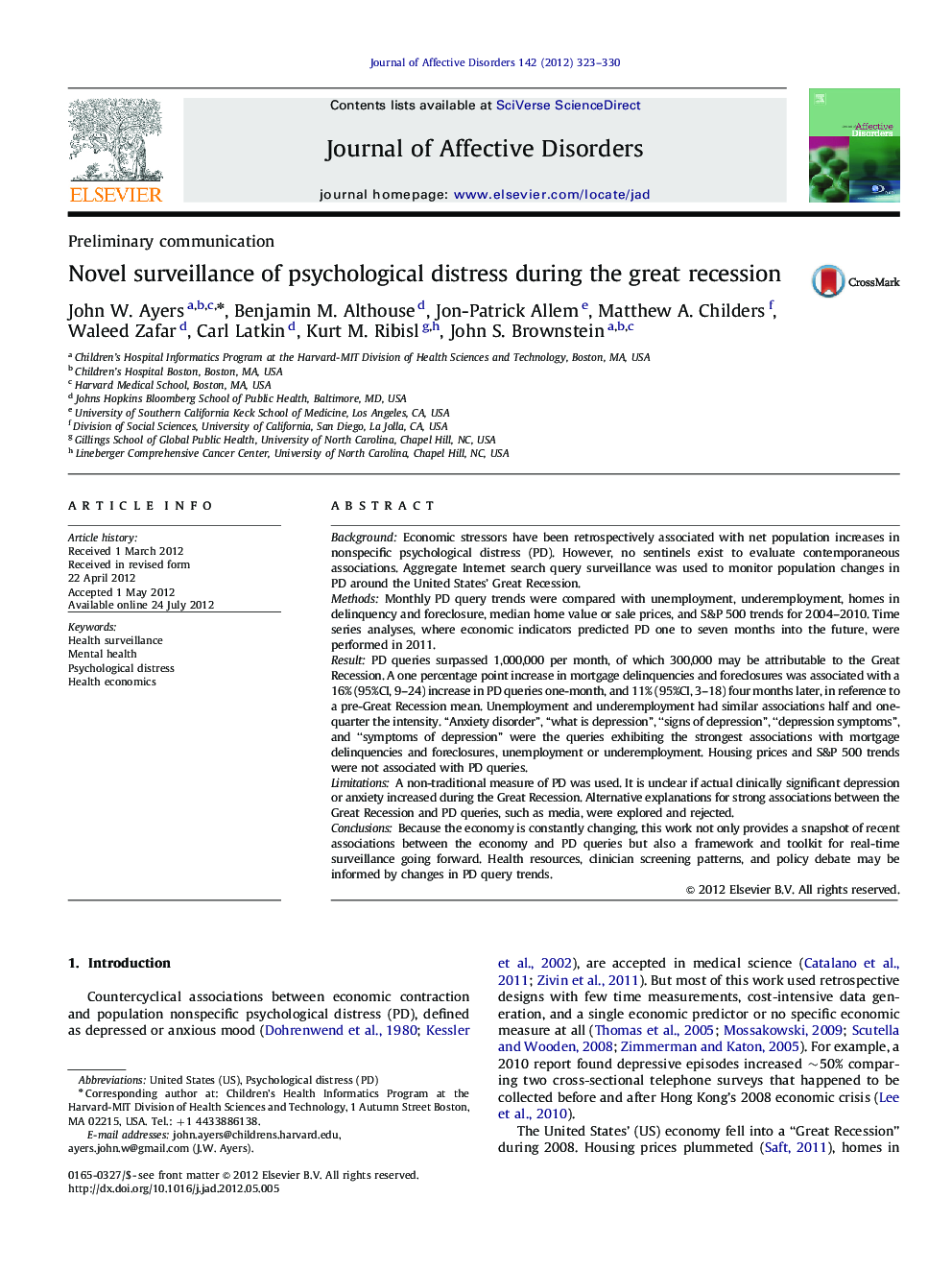| Article ID | Journal | Published Year | Pages | File Type |
|---|---|---|---|---|
| 4186342 | Journal of Affective Disorders | 2012 | 8 Pages |
BackgroundEconomic stressors have been retrospectively associated with net population increases in nonspecific psychological distress (PD). However, no sentinels exist to evaluate contemporaneous associations. Aggregate Internet search query surveillance was used to monitor population changes in PD around the United States' Great Recession.MethodsMonthly PD query trends were compared with unemployment, underemployment, homes in delinquency and foreclosure, median home value or sale prices, and S&P 500 trends for 2004–2010. Time series analyses, where economic indicators predicted PD one to seven months into the future, were performed in 2011.ResultPD queries surpassed 1,000,000 per month, of which 300,000 may be attributable to the Great Recession. A one percentage point increase in mortgage delinquencies and foreclosures was associated with a 16% (95%CI, 9–24) increase in PD queries one-month, and 11% (95%CI, 3–18) four months later, in reference to a pre-Great Recession mean. Unemployment and underemployment had similar associations half and one-quarter the intensity. “Anxiety disorder”, “what is depression”, “signs of depression”, “depression symptoms”, and “symptoms of depression” were the queries exhibiting the strongest associations with mortgage delinquencies and foreclosures, unemployment or underemployment. Housing prices and S&P 500 trends were not associated with PD queries.LimitationsA non-traditional measure of PD was used. It is unclear if actual clinically significant depression or anxiety increased during the Great Recession. Alternative explanations for strong associations between the Great Recession and PD queries, such as media, were explored and rejected.ConclusionsBecause the economy is constantly changing, this work not only provides a snapshot of recent associations between the economy and PD queries but also a framework and toolkit for real-time surveillance going forward. Health resources, clinician screening patterns, and policy debate may be informed by changes in PD query trends.
